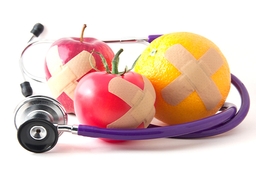Foods that Help You With Hair Loss

Do you regularly find strands of hair everywhere around you? On combs, floors, or in the bathroom drain. Wait there; don't panic! Although it looks scary, losing 50–100 strands of hair per day is still considered normal because the average adult head has 100,000–150,000 hairs.
However, if you lose more than 100 strands of hair per day, the situation becomes much more concerning. Severe hair loss can result in baldness.
Hair has two main structures: the hair shaft, which we see, and the follicle, which is hidden under the skin. Hair grows from the follicle. Its speed is 0.35 mm per day.
The hair follicles are extremely active and sensitive. As a result, it comes as no surprise that a lack of nutrition has a negative impact on hair growth.
What causes hair loss?
Hair loss can be caused by a variety of factors. Nutritional deficiencies, such as those related to vitamins B12 and D, biotin, riboflavin, iron, and other nutrients related to hair health, are among them.
Other risk factors for hair loss include smoking, alcohol consumption, stress, and a lack of sleep. According to a 2020 study conducted by the National Center for Biotechnology Information, drinking alcohol and not getting enough sleep cause more severe hair loss. This study included 1,825 women.
Other causes of hair loss include genetic factors, postpartum conditions in women, taking certain medications or undergoing chemotherapy, burns, autoimmune diseases, incorrect cosmetic procedures, and a low-protein diet.
What are the signs and symptoms?
The following are some signs of severe hair loss:
1. Hairline thinning over time
The hair partition begins to widen and become more visible, especially in women. When the hair is tied back, the scalp beneath is visible.
2. Patchy baldness
This type of hair loss is more common in men. It does, however, affect some women. There is no growth in that area, and the scalp is in good condition.
3. Sudden hair loss
This is a common condition that develops following physical or mental trauma. A person begins to experience significant hair loss, particularly when combing, waking up in the morning, or shampooing.
The 10 best hair growth foods
High-nutrient foods that promote hair growth include eggs, leafy greens, and fatty fish. Hair health can suffer from nutrient deficiencies. Here are the top ten hair growth foods:
1. Eggs
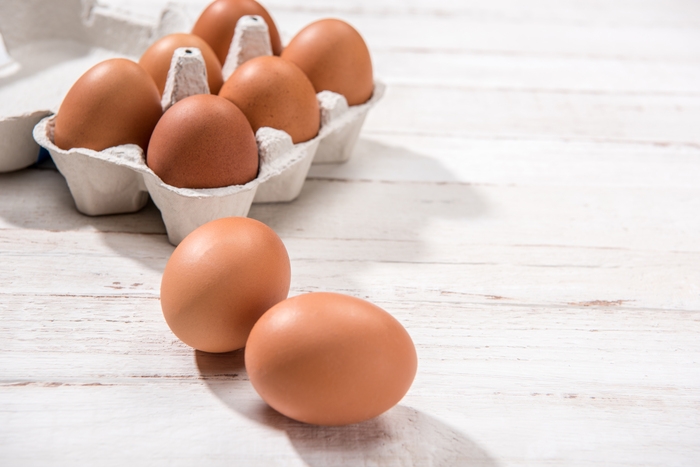
Eggs are high in protein and biotin, which aid in hair growth. Eggs are high in protein, which promotes hair growth. Biotin, on the other hand, aids in the production of keratin, a protein found in hair.
2. Berries
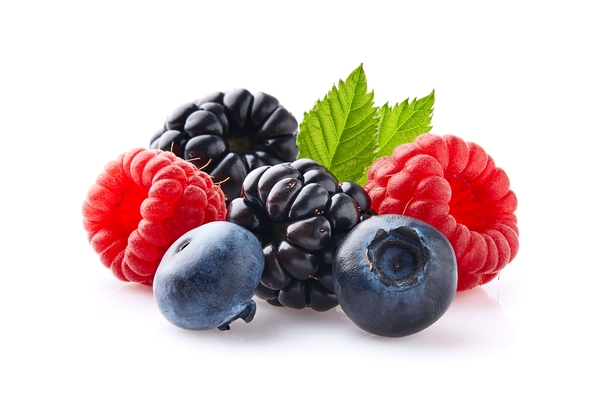
Berries are high in vitamin C and antioxidants. Antioxidants protect hair follicles from free radical damage. Vitamin C is also used by the body to produce collagen, a protein that is essential for strengthening hair and preventing it from becoming brittle and breaking.
Furthermore, vitamin C aids the body's absorption of iron from food. Anemia caused by iron deficiency can result in hair loss.
3. Spinach
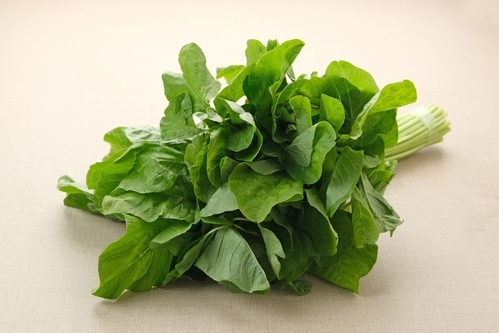
Spinach is a nutrient-dense leafy green that contains important nutrients like folate and iron, as well as vitamins A and C, which promote hair growth. A cup (30 grams) of spinach contains up to 20% of your daily vitamin A requirement.
4. Fatty fish
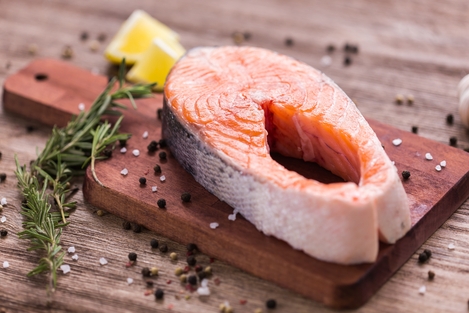
Fatty fish like salmon, sardines, and herring are high in omega-3 fatty acids, which promote hair growth. Furthermore, fatty fish are high in protein, selenium, vitamin D3, and vitamin B, all of which promote hair strength and health.
5. Sweet potatoes
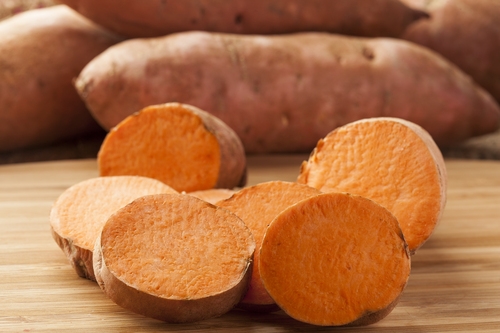
Sweet potatoes contain beta-carotene. This compound is converted by the body into vitamin A. According to research, vitamin A influences sebum production, which aids in hair health.
6. Avocado
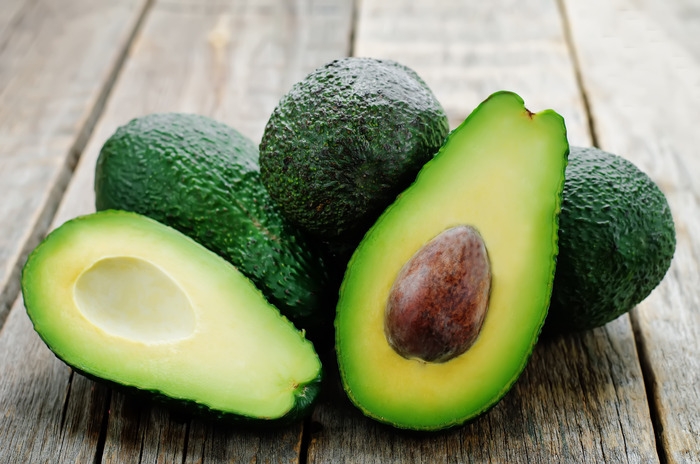
Avocado is high in healthy fat. Avocado is also high in vitamin E, which promotes hair growth. One 200-gram avocado contains 28% of your daily vitamin E requirement. Vitamin E, like vitamin C, acts as an antioxidant to combat free radicals.
7. Seeds and nuts
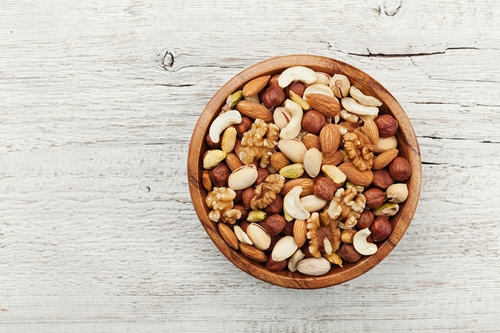
They contain a variety of essential nutrients for hair growth.
One ounce of almonds contains 48% of your daily vitamin E requirement. Vitamin B, zinc, and essential fatty acids are also found in nuts and seeds. Hair loss can result from a lack of any of these nutrients.
8. Seeds and grains
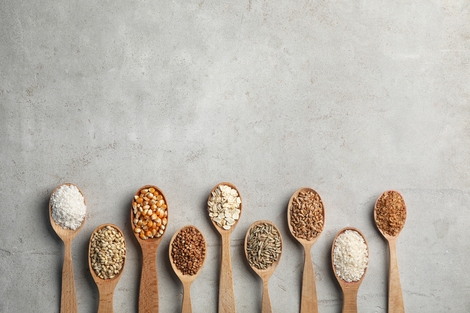
They are high in nutrients like vitamin E, zinc, and selenium. One ounce (28 grams) of sunflower seeds contains nearly half of the daily requirement for vitamin E.
9. Sweet bell peppers
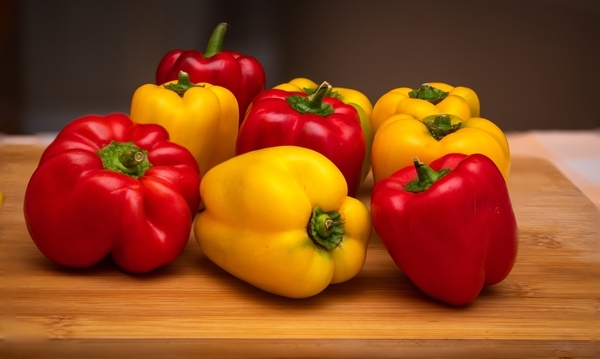
Sweet peppers are high in vitamin C and antioxidants. Vitamin C helps to produce collagen, which strengthens hair strands. Sweet peppers are also high in vitamin A. This vitamin produces sebum, which aids in hair health.
10. Oysters
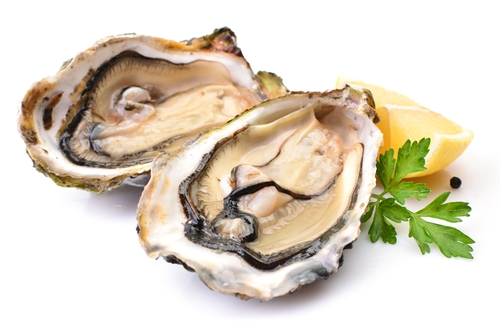
Oysters are a great source of zinc. One medium-sized oyster can supply up to 96% of a woman's daily zinc requirements and 75% of a man's. Zinc is one of the minerals that aids in the hair growth and repair cycle.
While supplements can be used to replace zinc-containing meals, you must be cautious. Too much zinc can be toxic.
Hair loss is caused by a variety of factors, including medical conditions, hormonal changes, and infections.
Micronutrient deficiencies, a lack of calories or protein, and certain high-dose dietary supplements are also causes of hair loss.


